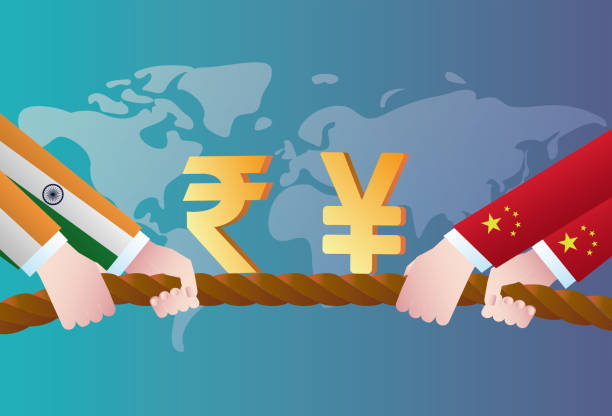Introduction
The Covid-19 epidemic had unimaginably affected The Indian economy, mainly when the lockdown was in place, which caused the entire country to stand at a standstill. This happened when the economy was in a state of decline and was beginning to show signs of slowing, especially in the financial sector, which was accompanied by declining consumer demand for items.
Several industries, including logistics, retail, tourism transport, etc., were struggling prior to the lockdown. These sectors are now struggling and sluggishly coping with the additional effects of the coronavirus epidemic.
The Indian government created several initiatives to stop the spread of the virus, mainly by introducing strict measures to lock down the population. A recession in the economy is likely to be the result of this.
Several countries worldwide, including India, have assessed the potential risks of reopening their economy. These measures aim to secure and revive the economy to bring it back to a growth rate in the coming year. This is in conjunction with limiting its spread, which implies that further lockdowns could become the norm.
The main question is, what will it take to help the Indian economy bounce back and rebuild itself? Check out the possibilities.
How will the economic performance of 2020 affect 2021?
The scourge is altering the landscape, but it is hard to develop an economic plan for the future when COVID-19 has been eliminated. This is because this is the first time anyone has ever had the kinds of measures taken to limit the spread of the disease, such as suspended transport, inactive facilities, and stopped projects.
The repercussions could differ in some ways between states as regional economic strategies govern them. Tourism has been impacted severely and could be further affected. The effect on small businesses, the tourism workforce, and investments in the transportation sector can be massive.
The lockdown severely affects certain districts with high performance across India. Around 130 districts are classified as red zones. These represent around 41% of India’s economic activity. They contribute around 38% to the country’s total industrial production and are heavily industrialized areas. The economic slowdown in these regions has impacted suppliers, and their profits have dropped dramatically. The general effects of the effects on supply chains and travel echo across almost every economic sector.
Expected Unemployment
There has been an increase in the number of people unemployed, which has led to a decrease in demand. This affected capacity for production as well as the utilization of resources. This has begun to impact the results of companies, which could be underperforming throughout the course. The laborers who migrate have been the most affected due to the lockdown.
To lessen the impact of this, to lessen the impact, Government of India has further increased its contribution to the Mahatma Gandhi National Rural Employment Guarantee Scheme, which offers an assured livelihood in rural areas by providing 100 days of job opportunities for applicants who agree on the opportunity to work in a non-skilled, labor-intensive job. The migrant workers might feel more secure staying close to their homes than relocating across states. However, this could result in a decrease in the opportunities for workers in many industries and areas.
Potential Losses
The impact on working capital and increased solvency risk could cause loan defaults and increased NPAs in the banking industry. The number of losses could vary by sector. However, some industries affected, including automobiles, airline construction, construction, real estate, and others, will need to continue to take on the consequences into 2021.
Covid-19 is not expected, which means it is difficult to draw accurate predictions in terms of economic growth is related. It is nevertheless possible to identify specific issues that could impact the Indian economy this year and the following. It could take an extended period, perhaps an additional year, for migrant workers to return to normality in their jobs and relocate to states that are not their own. That means the cost to rural families will only increase and further aggravated by the sluggish job market.
The demand for various products and services has dropped dramatically since the start of the closure. Since Covid-19 instances in India are predicted to peak at the end of September, The effect on retail, tourism, and other sectors will be massive. This could result in the loss of jobs, which will reduce demand. Given the uncertainty, full-scale operations will likely not restart in many industries this year. This could further affect the finances of many companies, which will result in a decrease in investment in capital until 2021.
Tough Times Ahead – But There Is Light at the End of the Tunnel
The decline in corporate revenues, the rise of unemployment, and lower profits will affect tax revenue. The government has announced various assistance programs following the onset of the Covid-19 pandemic. The tax revenue will be lower, and the spending on employment and social programs will weigh on the government’s fiscal position in 2021.
There are some rays of hope among this. The Indian economy could gain from lower fuel prices, which could lower the cost of imports. This is, assuming that the current crude oil prices remain the same.
The reports also indicate that many foreign companies are looking at India as an alternative production location for various sectors, including electronic components, pharma, and more. India must profit from this opportunity and become more accessible with various policy measures to draw foreign investment in 2021.
The COVID Impact Continues
Alongside MSMEs, the tourism and aviation sectors have faced significant financial difficulties. The reason for this is the high fixed costs that have increased in the current economic situation. The recovery of these sectors will take a considerable time and could result in an effect that cascades down to an economic scale. As the economy struggles in India, the virus is gaining speed in India, and the situation is quite different regarding the economy concerned.
Covid-19 has negatively impacted the global economy, and India is not exempt. Based on the current trends, India is predicted to be in a recession. Given this, the revival process must focus on building a resilient and sustainable economy while pursuing opportunities to build a more robust economy and increase the chances of living for everyone Indian.
End Note
India is a country in the process of development and has recently been going through a demand depression and high unemployment before the outbreak of Covid-19. The lockdown across the country led to an economic slowdown, and the problems have intensified. The crisis has impacted the financial security of millions.
Experts have predicted that India could be in a recession that affects the unorganized sector and semi-skilled employees losing their jobs. This is just one of the many repercussions on the Indian economy that will be witnessed this year.




